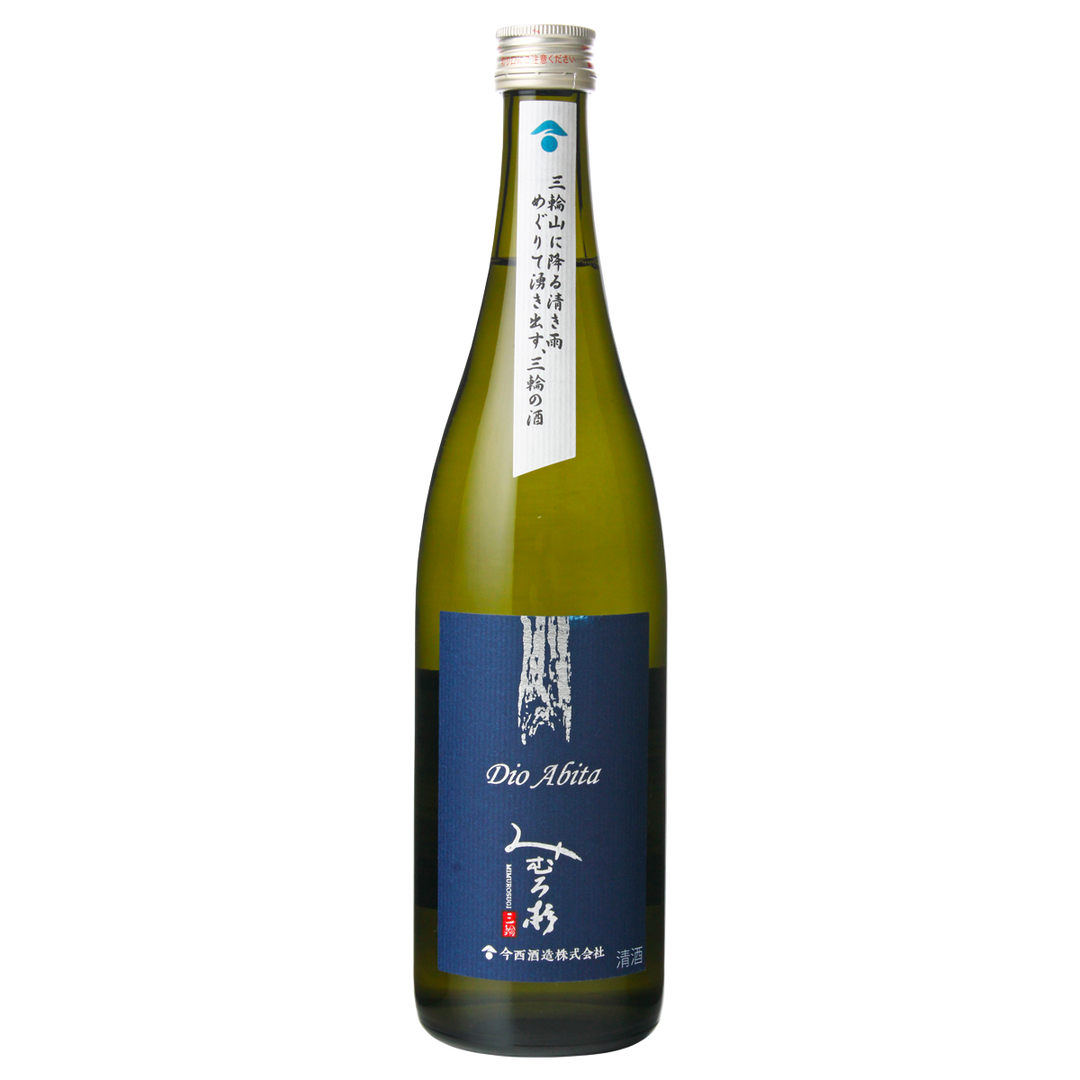
Mimurosugi Junmai Ginjo "Dio Abita"
- In stock, ready to ship
Dio Abita-- God Dwells-- in the mountains, streams, earth and walls of Miwa, Nara: where Imanishi Shuzo, makers of Mimurosugi, is based.
Legend has it that Imanishi Shuzo predates even the 1141 Sudo Honke, although verifiable records only date to the 1600s. Mount Miwa is considered the resting place of the god of sake, which makes Imanishi its castle. And while documents don't exist to prove its age, centuries of oral history cannot be interrupted by fires and human turmoil. Imanishi supplies sake for Omiwa shrine, which is Japan's oldest shrine and the house of the God of Sake.
Dio Abita is a 13% ABV genshu (undiluted) sake which has been pasteurized once for stability. It is off-dry with a bright and clean acidity, fresh, lemonade-like Ginjo aroma, juicy and round on the palate, with notes of yakult, apricot and lemon meringue. A divine experience that leaves you wanting more
Prefecture: Nara
Grade: Junmai Ginjo
Rice: Yamadanishiki
Polishing ratio: 60%
Yeast: House
Water: Medium soft subsoil water from an underground aquifer originating from Mount Miwa, a divine mountain
Fermentation Method: Sokujo
Alcohol: 13%
Acidity: 1.8
SMV: +3
It’s here at the foot of Mt. Miwa that you’ll find Imanishi Shuzo. Written records go back as far as 1660, but it’s known that Imanishi Shuzo existed long before that– even if those records are lost. Using the water from Mt. Miwa as well as rice from the surrounding area, 14th generation Imanishi-san subscribes to a philosophy of “pure and correct” brewing: not with respect to
efficiency, but to preserve the essential elements of brewing as a sacred practice. Out of respect for their place of origin, as well as the fact that Imanishi Shuzo was founded as an omikigura– a brewery that produces omiki, ceremonial sake– purity is hugely important. The brewery is cleaned thoroughly every day, steamed rice is hand-transported through the facility, rice is air
dried and hand-washed in tiny batches, as if to intimately reflect the pinnacles of Shinto practice: cleanliness, purity, reverence, proper and correct procedure.
As far as records are concerned, Sudo Honke in Ibaraki Prefecture, dated to 1141 and 55 generations deep, is the oldest brewery in Japan. But Sudo Honke refuses this title. In a 2015 interview with japanese magazine Shukan Asahi, the 55th head of the brewery, Yoshiyasu Sudo, said that Sudo Honke wasn’t the oldest sake brewery in Japan. “It’s a brewery in Nara, not us,” apparently referring to Imanishi Shuzo. In response, Imanishi-san comments that “we can only list our founding as 1660 because that’s as far back as we can trace it” with physical proof. “We’re certain it goes back further, but we can’t say that unequivocally.” Furthermore, there are no surviving records of why the brewery was created– very unusual for breweries of this period.
62.02 YPR

